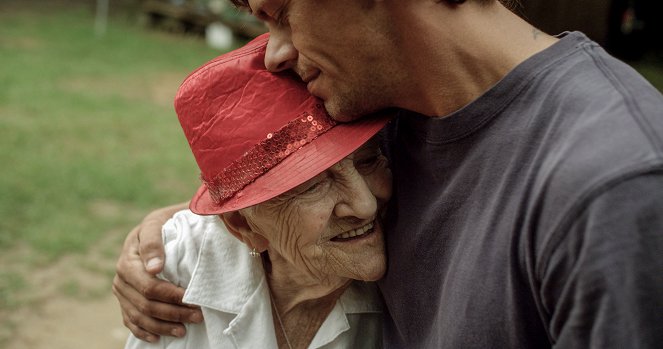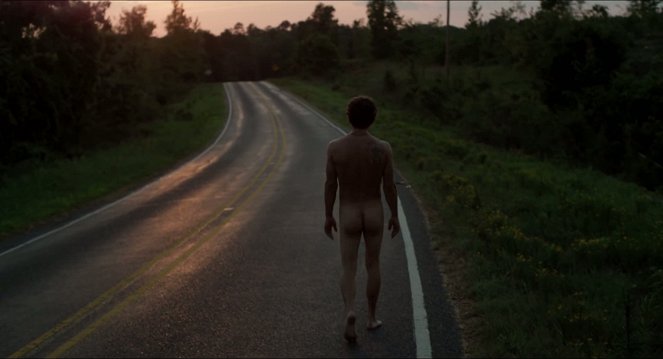Regie:
Roberto MinerviniInhalte(1)
Sie leben am Rande der Gesellschaft, an der Grenze von Illegalität und Anarchie. Der italienische Dokumentarfilmer Roberto Minervinis zeichnet ein intimes Porträt weißer Amerikaner, die den sozialen Abstieg fürchten oder schon ganz unten angekommen sind und eröffnet einen Blick auf die Abgründe der USA von heute. Lisa arbeitet als Kassiererin in einem Stripclub und Mark schlägt sich mit Gelegenheitsjobs auf dem Schrottplatz durch. Seit Jahren führt er ein chaotisches Leben zwischen Gefängnisaufenthalten und Familienproblemen. Beide leben sie in Bawcomville, einem Stadtviertel von West Monroe, einer der Metamphetamin-Hauptstädten der USA. Die Region ist geprägt von Armut und Rauschgiftsucht, und auch Mark und Lisa sind drogenabhängig. Gemeinsam mit ihren Freunden führen sie ein Leben zwischen höhenflugartigen Rauschzuständen und abgrundtiefem Elend, eine Existenz zwischen zwei Schuss. In Texas hingegen wappnet sich eine paramilitärische Gruppe gegen eine mögliche Invasion aus dem Innern, die angeblich ihre Freiheit bedroht.
So gegensätzlich diese beiden Gruppen auch sind – für beide ist die „Familie“ das letzte Bollwerk gegen den endgültigen Absturz und die vollkommene Hoffnungslosigkeit. Ein filmisches Porträt einer Gemeinschaft am Rande der Gesellschaft: schonungslos, ungeschminkt und gleichzeitig ergreifend. Roberto Minervini begegnet seinen verlorenen Protagonisten mit viel Empathie. Die Bildkompositionen und die erstaunlich feinfühlige Beleuchtung erinnern manchmal sogar an Fotografien von Nan Goldin. Mit „The Other Side“ wird Roberto Minervinis Schaffen deutlich frontaler und politischer. Der aufrüttelnde Film wurde unter anderem beim Festival du Film Grolandais in Toulouse ausgezeichnet und war bei den Filmfestspielen von Cannes 2015 in der Sektion „Un Certain Regard“ nominiert.
(arte)
Videos (1)
Kritiken (1)
Minervini is an example of a hybrid filmmaker (in Italy, other examples include Alessandro Comodin, Michelangelo Frammartino and, to some extent, Gianfranco Rosi), whose films are too much in the style of documentaries to be fiction and, at the same time, have too many staged moments to be pure documentaries. As in the preceding Texas trilogy, in The Other Side non-actors perform scenes that are more or less inspired by their real lives and subsequently arranged into a relatively cohesive narrative (while the staged scenes often serve to connect them). It is thus a combination of documentary observation with collective dramaturgy (Jean Rouch used something similar, “collective anthropology”, in the past). Besides Minervini, the crew comprised only three other people (cameraman, sound engineer and second assistant camera), who attempted to communicate with each other without the use of film jargon in order not to have the effect of being foreign elements and thus to fit into the given environment. The film was shot with a digital camera without interruption (until the disk capacity ran out), without artificial lighting and without changing lenses. With his disarming straightforwardness, empathetic approach and method of filming, Minervini breaks down the notional wall between the creator and the (social) actor and lets the actors reveal themselves. His unsentimental and non-judgmental viewpoint is not subordinated to an attempt to confirm or refute any particular opinion. He also takes a neutral position in the case of two drug addicts and members of a far-right militia (their thoughts and sources of frustration are in many ways similar – just as one half of the film complements the other). The social context is not determinative for him. He mainly wants to understand the emotions of the characters and the relationships between them. Thanks to that, he offers an unpleasantly intimate insight into the world of people who live on the periphery of middle-class America, but there is an ever-increasing number of them and they are increasingly vocal and have greater influence (because they speak and think like their current president) and we obviously should try to understand them if we want to comprehend what is happening with society as such. 75%
()
Galerie (12)
Photo © Lucky Red


